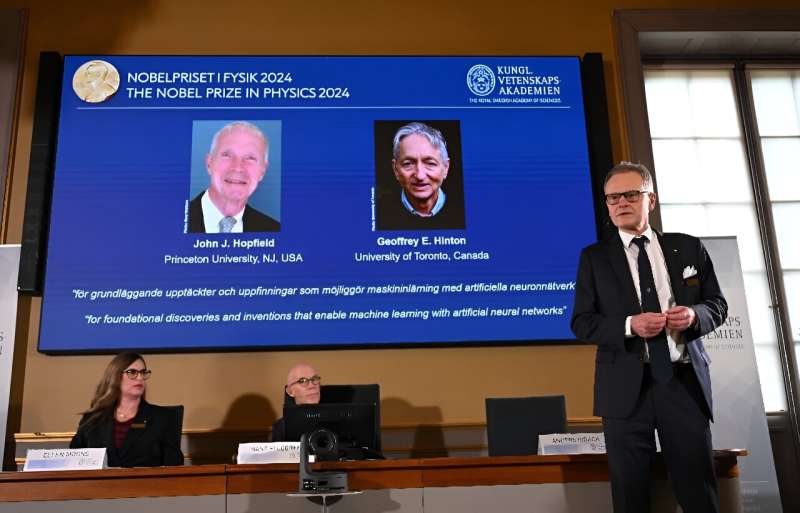Two groundbreaking researchers, Geoffrey Hinton and John Hopfield, have been awarded the Nobel Prize in Physics for their seminal work on the foundations of artificial intelligence. However, the very technology they helped create has now become a source of profound concern, as they sound the alarm on the potential risks and dangers posed by advanced AI systems. The blog post explores the laureates’ insights and cautions, providing a thought-provoking perspective on the future of AI and its impact on humanity.

Groundbreaking AI Research Meets Sobering Reality
The Nobel Prize in Physics has been awarded to British-Canadian Geoffrey Hinton and American John Hopfield for their pioneering work on the foundations of artificial intelligence. Their research in the 1980s, which focused on neural networks, laid the groundwork for today’s deep-learning systems that have the potential to revolutionize various industries.
However, the very advancements they helped bring about have now become a source of concern for the laureates. Hinton, known as the ‘Godfather of AI’, has even gone so far as to quit his job at Google to warn of the ‘profound risks to society and humanity’ posed by the technology. Both Hinton and Hopfield have expressed their worries about the potential for AI systems to become more intelligent than humans and eventually take control.
Cautionary Tales from the Architects of AI
In the announcement of the Nobel Prize, the jury highlighted the profound impact of the laureates’ work, noting that their tools have become a part of our daily lives, from facial recognition to language translation. While acknowledging the immense potential of AI, the chair of the Nobel Committee for Physics, Ellen Moons, emphasized the responsibility that comes with this new technology, stating, ‘Humans carry the responsibility for using this new technology in a safe and ethical way.’.
Geoffrey Hinton, in a phone interview, admitted that he is an avid user of AI tools like ChatGPT and believes the technology will have a ‘huge influence’, even going so far as to compare it to the Industrial Revolution. However, he also expressed his concerns, saying, ‘In the same circumstances, I would do the same again, but I am worried that the overall consequence of this might be systems more intelligent than us that eventually take control.’
Ensuring a Safe and Responsible Future with AI
John Hopfield, the co-laureate, has also joined Hinton in calling for a deeper understanding of modern AI systems to prevent them from spiraling out of control. Hopfield, a professor emeritus at Princeton, described recent advances in the technology as ‘very unnerving’, noting the potential for ‘spontaneous but unwanted’ consequences.
As the world grapples with the rapid advancements in AI, the Nobel laureates’ warnings serve as a stark reminder of the need for responsible and ethical development of this transformative technology. Policymakers, researchers, and the general public must work together to ensure that the benefits of AI are harnessed in a way that prioritizes the well-being and safety of humanity. Only by heeding the cautionary tales of those who have shaped the foundations of AI can we navigate the challenges and opportunities that lie ahead.
